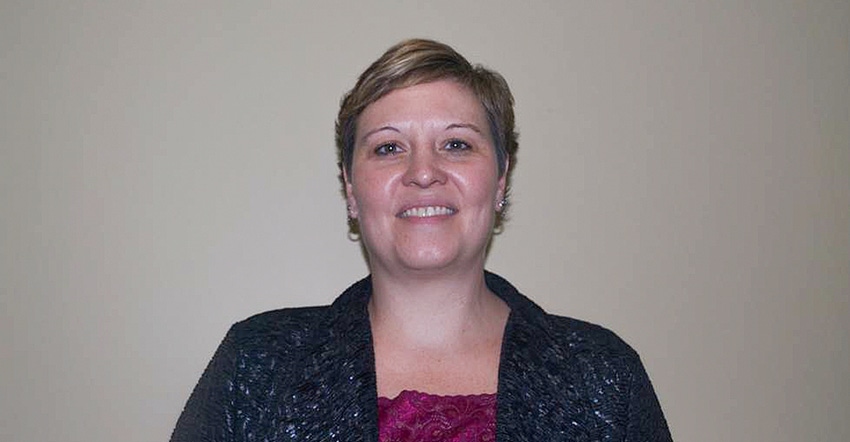October 11, 2017

By Joy McClain
Life is hard. Agriculture is hard. But doing your best, no matter what life throws at you or what job is at hand, is a firm philosophy for Rebecca Schroeder. “Good enough is the enemy of greatness,” she says.
Schroeder believes personal aha! moments throughout her life contributed to shaping her character and ultimately helping her earn the title of president and owner of Whiteshire Hamroc, an international hog operation based near Albion, Ind.
Here are five of her aha! moments.
1. Recognize the qualities of a leader. Schroeder’s first interaction with the owners of Whiteshire Hamroc was as their baby-sitter. Then during high school and college, she worked in the farrowing house. After graduating from Purdue University, she went back to the company. The founder, Mike Lemmon, challenged her with handwritten notes scribbled across articles he would leave on her desk. Schroeder describes Lemmon as humble and a lifelong learner, passionate about teaching others about the business. His inclusive attitude and willingness to listen to his employees reinforced her willingness to do whatever task needed to be done, no matter how dirty or menial.
2. Realize when you have your dream job. Rather than worrying about promotions, Schroeder’s concentration all those years was focused on getting the job done and doing her best in an environment that promoted one’s best. That dedication paid off as she claims she’s been blessed with her “dream job.”
The mission and focus of her company fit perfectly with her belief system, as well as her life and work ethic. The bottom line for her and Whiteshire Hamroc is “that things cannot be measured in dollars but rather by the building up of people.”
3. Do things the right way every time. Schroeder lives by the belief that ag business needs to do things the right way every time. She points to an example related to ultrasound and performance at the company’s Beijing office. Workers recognized quickly that those menial tasks are a lot of work, and they only wanted to do them a few times rather than all the time, Schroeder recalls. That kind of attitude to Schroeder is not acceptable.
“You have to be consistent to get the full report,” she says. “You cannot perpetuate poor performance. It’s hopeful that joint venture farms will be able to see the same hogs with the same genetic standards without the travel of the hogs. They must have the same standards in order to do so, and hopefully it will come with future generations willing to invest in what’s necessary day in and day out to get the same consistent results.”
4. Others are watching you. “Be willing to evaluate yourself every day on the tasks that you are doing, even if you don’t like it, which speaks of your commitment,” Schroeder says. “Others are watching you. Your children are watching. You have the opportunity to make what you do matter. Don’t waste that time.
“Those watching need to see someone who will not blame others, and who will take ownership and give their best effort. They need to understand that there’s a world out there that will not even consider them for a job or opportunity if their attitude will not take responsibility for himself or herself.”
5. People watch mega-farms, and that has ramifications for everyone. Schroeder doesn’t take food safety responsibility lightly. She knows livestock producers have more regulations and paperwork hoops to jump through. A lot of regulations have been put in place because people want to make sure mega-farms are doing things right.
What people don’t understand is that this pushes the industry in a direction where smaller producers can’t do it all, she says. There’s less and less time for the animal. They can’t compete with the “big guys.” Some well-intentioned folks who want to protect people from the bigger guys are inadvertently pushing agriculture toward having only the big guys in business, Schroeder says.
That’s why she feels strongly that agriculture needs young people who will be willing to lobby and advocate for farmers’ rights.
“We as farmers have a tremendous environmental responsibility, and we must be willing to take initiative and hold to integrity, doing the right thing because it’s the right thing to do,��” Schroeder concludes.
McClain writes from Greenwood, Ind.
You May Also Like




